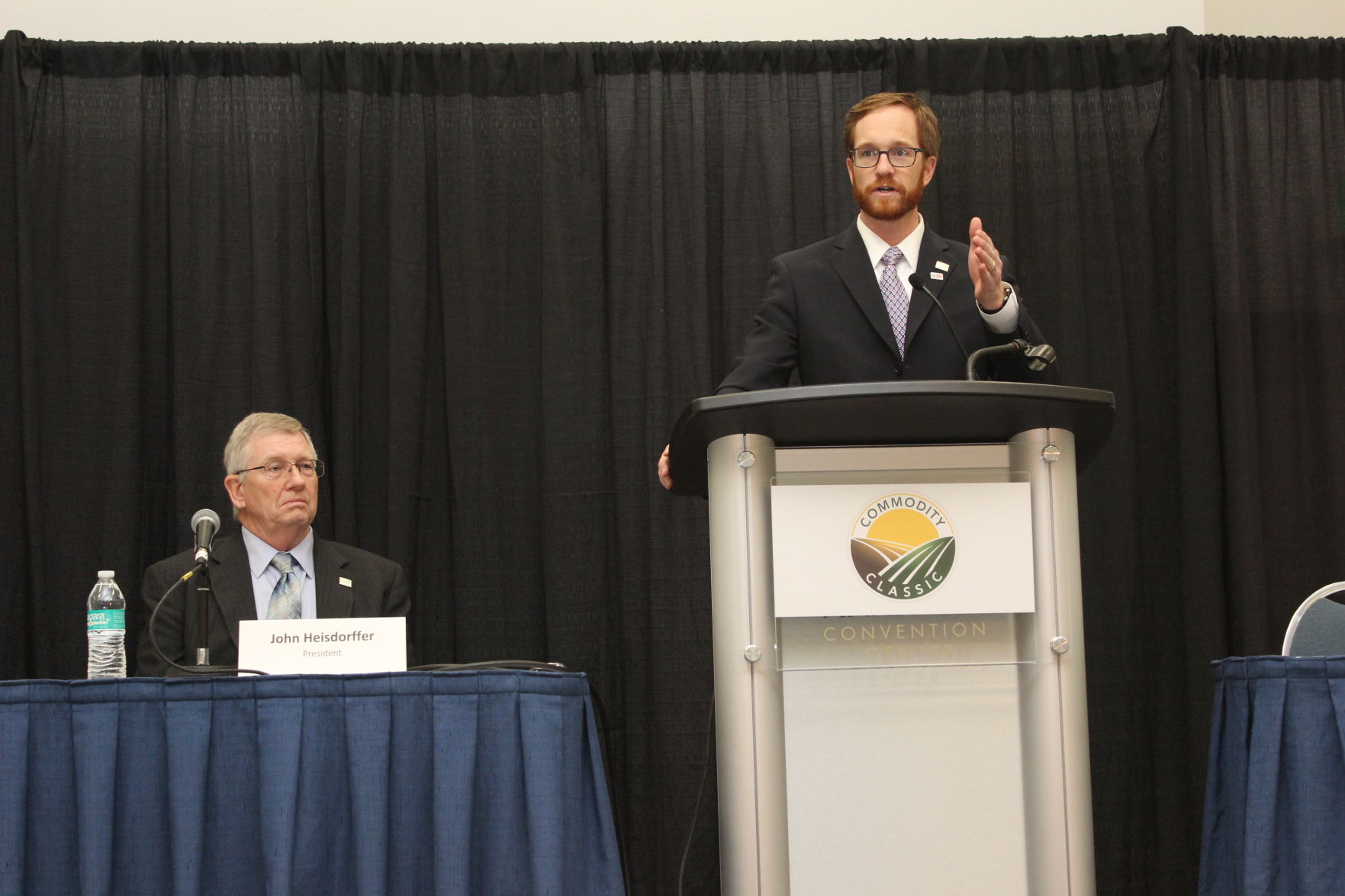Hard economic times and trade negotiations are on the minds of U.S. soybean farmers today.
Farmer leaders of the American Soybean Association gathered for a press conference at the 2018 Commodity Classic, Feb. 27, in Anaheim, California. ASA Chairman, Ron Moore; President John Heisdorffer; Vice President Davie Stephens; and newly hired CEO Ryan Findlay spoke to reporters about the goals of the organization in 2018 and beyond.
“The economic skies are still cloudy,” Moore told reporters. “We’ve seen a drop in net farm income of 40 percent in the last year and it’s dropped 50 percent since 2013.” That’s why, he added, farm bills aren’t written for the good times, but created for the bad times.
“We are in the bad times and we need the 2018 farm bill to get done this year,” Moore said. “We seen the economic stakes and need to at decisively on these negotiations. A rocky arm economy needs a strong safety net and Title 1 and crop insurance and needs to highlight conservation, research and bioeconomies and a robust export program.” He added that expanding Foreign Market Development and Market Access Program funding are time-tested ways to improve farm income and trade balance in tough times.
Heisdorffer spoke about the importance of trade to U.S. soybean growers.
“Soybeans and soy products are the leading crop exported with more than 60 percent of the crop exports of the U.S.,” he said. “U.S. agriculture ran a $2.4 billion trade surplus in 2016.” Soybean growers are particularly concerned about NAFTA, which grew soybean exports to Mexico fourfold since its 1994 signing and made Mexico the No. 1 customer for soybean oil, meal and whole soybeans, with Canada a strong customer as well.
“TPP was very important to us and being left out of that conversation when the President took us out of TPP was bothersome,” Stephens said. “It’s encouraging to hear that he’s wanting to rethink what TPP is and we hope we can work with the administration to get back into the TPP and work to increase trade.”
Soybean growers are very concerned about investigations that are putting other domestic industries over farmers and discussions about putting tariffs on aluminum and steel imports, which very often mean retaliations against U.S. soybeans. Additionally, the more recent added stringent requirements from China regarding foreign material in soybean shipments has garnered soybean farmers’ attentions. To avoid weed seed contamination in shipments and avoid introducing more herbicide-resistant weed species to China, officials there have added new guidelines to requirements for US soybean shipments. U.S. suppliers are working with the Chinese government to hammer out definitions of foreign matter and other details.
Stephens spoke to farmers looking forward to the new policy coming out of the Trump Administration regarding improving U.S. rural infrastructure.
“We are largely able to get our soybeans to market more quickly and efficiently than our South American competitors, but that advantage takes maintaining and upgrading our entire supply chain infrastructure—road, river, rail and port,” he said. Soybean looks forward to the funding that’s ben earmarked for improving locks and dams and the long term funding to dredge and maintain navigable channels and ports. Broadband access to rural America will vastly improve the quality of life for farmers and rural communities, Stephens added.
The 2018 Commodity Classic continues tomorrow, Feb. 28, with the General Session headline speaker U.S. Secretary of Agriculture Sonny Perdue.
Jennifer M. Latzke can be reached at 620-227-1807 or [email protected].


